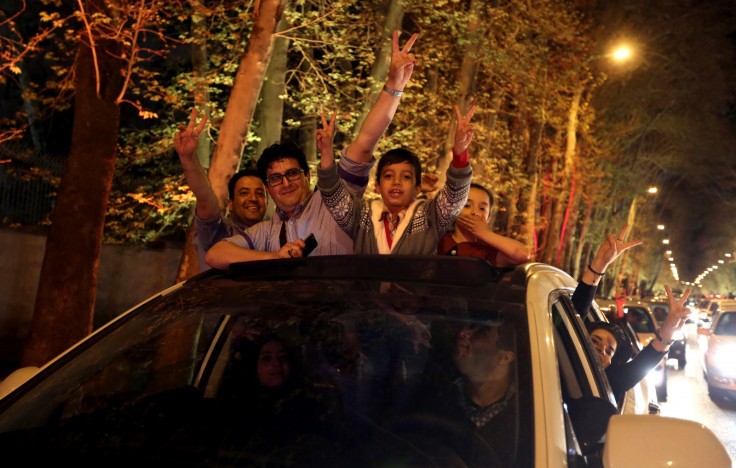Why Benjamin Netanyahu, Henry Kissinger and Obama's US critics have it wrong on Iran's nuclear deal

Amid all the talk of centrifuges, uranium enrichment and other equally dry (albeit important) technicalities of nuclear science, it would have been possible to miss the most heart-warming aspect of Iran's long-awaited nuclear agreement with the US and Europe five days ago.
That was the videos and photographs that emerged on April 2 after the deal was signed showing Iranians on the streets of Tehran, taking to their cars in true Middle East celebratory style to wave flags and honk horns and celebrate what many in Iran will see as a new dawn for the long-isolated country.
It was those images more than anything that demonstrate why Israeli Prime Minister Benjamin Netanyahu, his cheerleaders in the US Congress and more recently former US secretaries of state Henry Kissinger and George Schultz have got it so wrong in their opposition to the US-led deal with Iran.
This should not be seen as a concession to Iran's hard-line clerics, but to 75 million Iranians that have had to live under them for three decades and now see light at the end of the tunnel.
In his thinly-veiled threats about military action and his attempts to derail the talks at every stage, Netanyahu has not just looked out of touch with reality but deeply cynical. He was playing to the right wing that got him elected but whose attitudes to the world outside Israel is as backwards as his own.
Make no mistake, this deal is a victory for Iran, for President Hassan Rouhani, for the Islamic Republic and for Ayatollah Ali Khamenei, who has managed to keep up the anti-US rhetoric at the same time as wooing its president, Barack Obama.
Obama's desperation for some semblance of a foreign policy win after eight years of failure was palpable during the talks, but it paid off. Providing the framework doesn't go completely off the rails in the coming months – the actual deal will be agreed and signed later this year – he has his legacy project.
But it is a bigger victory for Iranians, who have languished under decades of sanctions that have crippled the Iranian economy. With sanctions lifted – as they will be if Iran sticks to its side of the deal – Tehran will be able to sell its oil and money could start flowing in again.
As could tourists, as IBTimes UK reported this week. British tour operators had already recorded an increase in appetite for holidays there last year, as diplomatic relations started to improve following the election of moderate president Hassan Rouhani in 2013.
Now, barely a week after the deal and we are seriously talking about a surge of tourism to Iran. From the ancient city of Esfahan to the bazaars of Tabriz and the metropolitan city of Tehran, tourists may have a better chance to learn about Iran and its history.
It is the quintessential neo-conservative myth that open economies lead to open societies, and Iran has a long way to go before it has any semblance of democracy. The Iranian regime will no doubt continue to supress minorities and ban parties that push for liberal political or cultural change.
As Kurdish Iranian leader Abdullah Mohtadi argued last month, more people have been executed under 'reformist' Hassan Rouhani than his hard-line predecessor, Mahmoud Ahmadinejad.
But consider the damage that Iran has done to the Middle East in three decades of isolation and the dire economic situation that a generation of Iranians have grown up into. The nuclear deal may be a baby step towards an open and (whisper it) democratic Iran, but it is a step in the right direction.
© Copyright IBTimes 2025. All rights reserved.






















